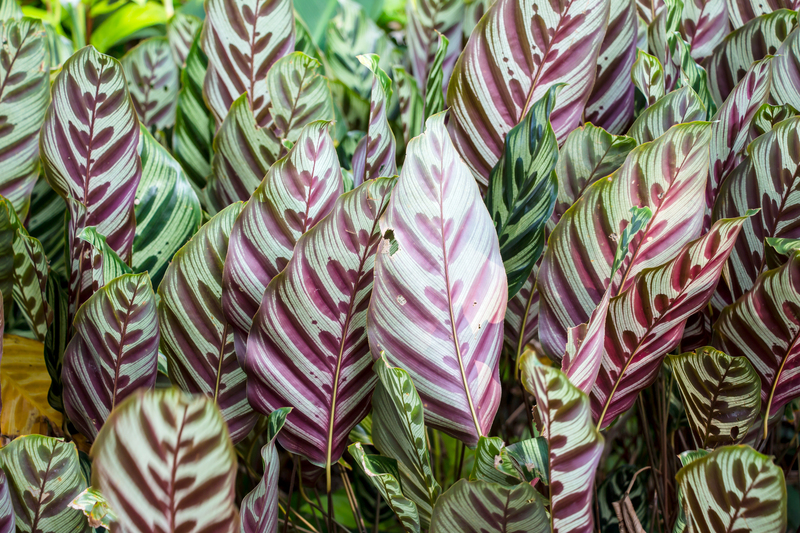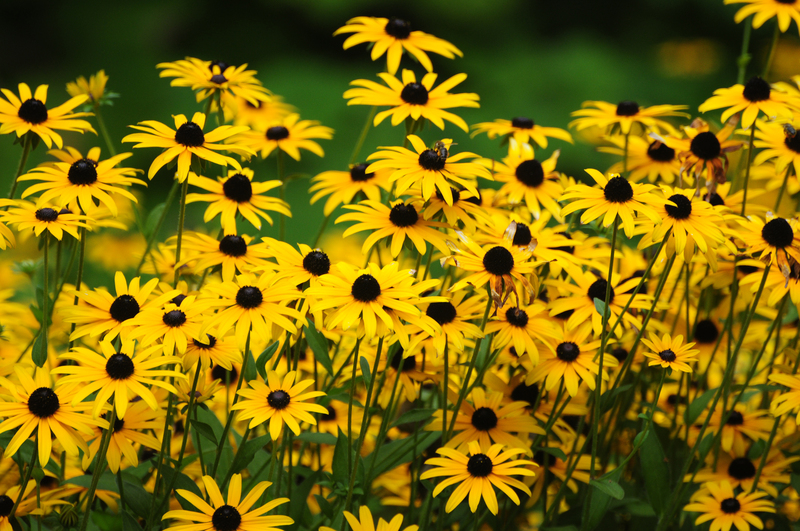Master the Basics with These 9 Gardening Tips for Beginners
Posted on 22/09/2025
Master the Basics with These 9 Gardening Tips for Beginners
Are you looking to create a beautiful, thriving garden but don't know where to start? Whether you have a spacious backyard or a simple balcony, beginner gardeners can build essential skills and cultivate their own green oasis. In this comprehensive guide, we'll share the 9 best gardening tips for beginners to help grow your confidence and your plants! From picking the right plants to understanding soil, these gardening basics will set you on the path to a lush, healthy garden.
Why Mastering Gardening Basics Matters
Gardening is a rewarding hobby that offers physical activity, stress relief, and the pleasure of growing your own food or flowers. But gardening for beginners can seem overwhelming with so many different plants, tools, and techniques. Mastering the essentials is crucial to avoid common pitfalls, reduce frustration, and ensure plant growth and health. Let's dive into the best beginner gardening tips to kickstart your gardening adventure!

1. Understand Your Garden's Environment
Assess Sunlight and Shade
- Observe how sunlight moves through your yard or balcony. Most vegetables and flowering plants need 6-8 hours of direct sun each day.
- Note areas that are shaded or receive less light, as these are ideal for shade-tolerant plants like ferns or hostas.
Know Your Climate Zone
- Use the USDA Hardiness Zone Map or your country's equivalent to determine which plants will thrive in your region.
- Choose plants labeled for your zone to avoid disappointment and wasted effort.
Pro Tip: Understanding your site's conditions ensures you select the best plants for beginners that are well-suited to flourish in your unique climate and light patterns.
2. Start with Easy-To-Grow Plants
If you're new to gardening, begin with low-maintenance and resilient plants. This helps build your skills gradually while seeing quick results, which is both motivating and rewarding.
Suggested Plants for Beginners
- Vegetables: Lettuce, radishes, beans, cherry tomatoes, and zucchini
- Herbs: Basil, mint, parsley, chives, and oregano
- Flowers: Marigolds, sunflowers, calendula, pansies, and nasturtiums
Tip: Look for "easy-care" or "suitable for beginners" labels when buying seeds or starts. These plants are generally more forgiving to minor mistakes.
3. Learn About Soil Preparation
Test and Improve Your Soil
- Perform a soil test using a home kit or by sending a sample to a local cooperative extension.
- Check for key factors like pH, nutrient levels, texture, and drainage.
Healthy soil is the foundation of a successful garden. For most plants, a slightly acidic to neutral pH (6.0-7.0) is ideal. Enriching your soil with organic matter such as compost or well-rotted manure promotes robust plant growth and resilience.
Prepare Your Beds or Containers
- Loosen compacted soil to allow roots to penetrate easily.
- Mix in compost before planting to supply nutrients.
- If container gardening, use quality potting mix, not regular garden soil.
4. Water Wisely
Overwatering is one of the most common mistakes for beginner gardeners. The goal is to keep the soil consistently moist but not soggy.
Watering Tips for Beginners
- Water early in the morning or late afternoon to reduce evaporation and avoid disease.
- Check soil moisture with your finger. If the top inch is dry, it's time to water.
- Deeply and less frequently is better than shallow, frequent watering. This encourages deep root growth.
- Use a soaker hose or watering can for more control over water distribution, especially in raised beds and containers.
5. Practice Proper Plant Spacing
Read seed packets or plant labels carefully for correct spacing requirements. Crowded plants compete for sunlight, water, and nutrients, which can reduce your harvest and increase the risk of disease.
How to Space Plants
- Use measuring sticks, string, or your hands to gauge distance between plants.
- Give larger plants, like tomatoes or squash, plenty of room for air circulation.
- Thin seedlings after sprouting if they are too close together.
6. Learn the Basics of Mulching
Mulch is a gardener's secret weapon. It helps conserve moisture, suppress weeds, regulate soil temperature, and slowly adds organic matter as it decomposes.
Types of Mulch for Beginners
- Organic Mulch: Straw, wood chips, shredded leaves, grass clippings
- Inorganic Mulch: Stones, gravel, landscape fabric (best for decorative beds, less so for edibles)
Apply a layer of mulch about 2-3 inches deep, keeping it a few inches away from plant stems to prevent rot.
7. Feed Your Plants Properly
Just like people, plants need balanced nutrition!
- Use slow-release granular fertilizer or liquid feeds according to plant instructions.
- Compost is an excellent natural fertilizer that also improves soil structure.
- Be careful not to over-fertilize, especially with synthetic products, as this can burn roots and harm soil life.
Tip: Keep a gardening journal to track when and what you feed your plants, helping you avoid under- or overfeeding.
8. Stay on Top of Weeds and Pests
Weeding and pest management are vital for a successful garden. Weeds steal resources from your plants, while pests can quickly ruin crops.
Beginner Weed and Pest Management Tips
- Hand-weed regularly before weeds go to seed.
- Apply mulch to reduce weed emergence.
- Inspect plants often for signs of pests such as holes, chewed leaves, or sticky residue.
- Pick off visible insects by hand or spray with a gentle soap solution.
- Encourage beneficial insects like ladybugs and lacewings.
Note: Avoid broad-spectrum pesticides, especially if you're growing edible plants. Choose organic or natural methods whenever possible.
9. Record and Reflect on Your Gardening Journey
The most successful gardeners keep records and learn from their experiences. Documenting your garden's progress builds your knowledge and confidence for next season and beyond.
How to Keep a Gardening Journal
- Note planting dates, varieties, weather, watering, and feeding schedules.
- Record what performs well and what struggles each season.
- Take photos or draw diagrams for visual reference.
- Update your journal with lessons learned, new ideas, or adjustments for the future.
Reflecting on your gardening successes and challenges accelerates your learning curve more than any book or video ever could!

Bonus: Enjoy the Process and Keep Growing
Gardening is a continual journey of learning, experimenting, and adapting. Don't be discouraged by minor setbacks or failed crops. Every gardener has them--even the experts!
- Celebrate every milestone, from sprouting seeds to your first harvest.
- Connect with local gardening clubs, online forums, or neighbors to share tips and inspiration.
- Expand gradually--try new plants and methods each season.
Remember: The key to mastering basic gardening skills is patience, observation, and a willingness to learn from nature.
Conclusion: Your Path to Gardening Success Starts Here
By following these 9 beginner gardening tips, you'll gain confidence and set a strong foundation for a beautiful, productive garden--no matter your space or experience level.
Recap of the Essential Tips:
- Assess your site's light and climate
- Start with resilient, easy plants
- Prepare and maintain healthy soil
- Master watering and mulching basics
- Respect proper spacing for strong plant growth
- Feed plants appropriately and avoid over-fertilizing
- Stay ahead of weeds and pests naturally
- Document your journey and celebrate progress
- Have fun and keep learning!
If you're ready to master the basics, these expert gardening tips for beginners will help you plant, nurture, and grow your best garden yet!
For more guides on easy gardening for beginners, plant care tips, and seasonal gardening advice, be sure to bookmark our site and join our gardening community today!
Latest Posts
Exploring the World of Herb Cultivation at Home
Master the Basics with These 9 Gardening Tips for Beginners
Garden Equilibrium: Achieve Peace with Zen Garden Elements



